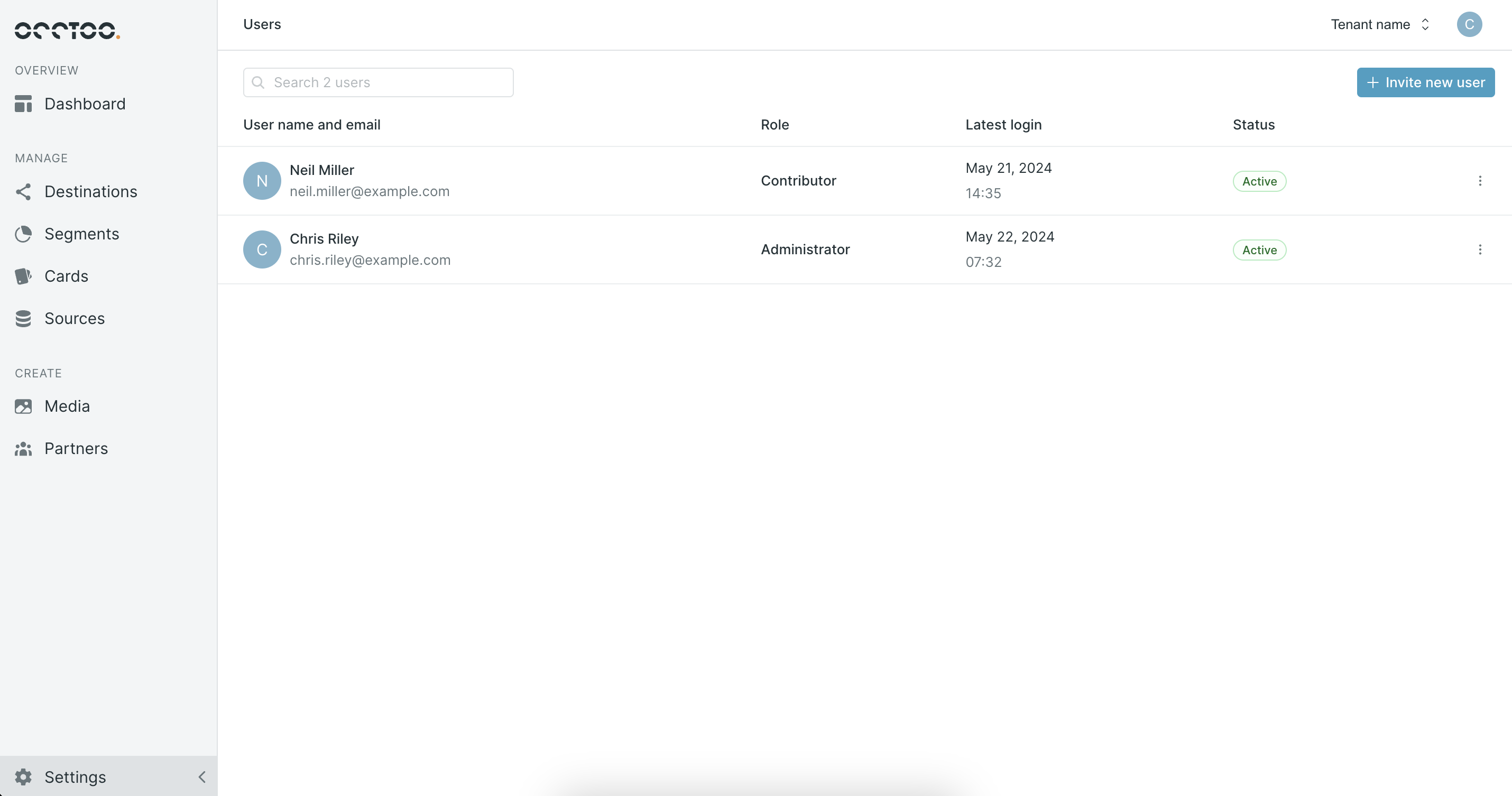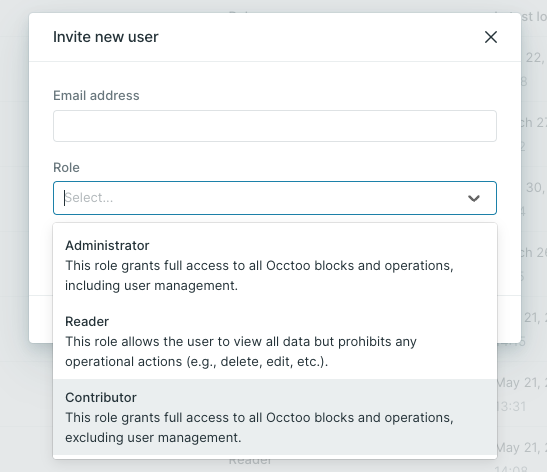Release 22th May
New features 🎉
User management
We are excited to announce the release of our new user management feature, designed to streamline and enhance the way you manage user roles within Occtoo Studio. This feature introduces a structured approach to user permissions, ensuring that your team members have access to the tools they need without compromising security or operational efficiency. With the addition of three distinct user roles—Administrator, Contributor, and Reader—you can now tailor access levels to align with individual responsibilities and organizational needs.

The Administrator role is the most comprehensive, offering full access to all Occtoo blocks and operations, including user management. This role is ideal for team leaders or IT personnel who require the ability to oversee and modify user permissions, manage content, and perform any administrative tasks. On the other hand, the Contributor role provides similar extensive access but excludes the capability to manage users. Contributors can interact with and modify all Occtoo blocks and operations, making this role perfect for content creators and developers who need robust tools to carry out their tasks effectively without the additional responsibility of user administration.

Lastly, the Reader role is designed for users who need to access and view data without the ability to make any changes. This role ensures that important information can be disseminated across the organization without risking unintended modifications or deletions. Readers can access all content within Occtoo, making it suitable for analysts, stakeholders, or any team members who require insight into the system’s data without engaging in operational actions. This new user management feature not only enhances security but also improves workflow by clearly delineating user responsibilities, empowering your team to work more efficiently and securely.

